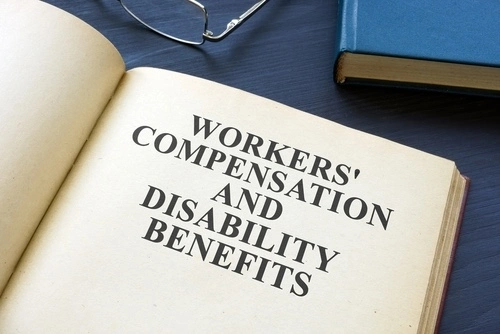In Florida, workers injured on the job may be entitled to benefits through the workers’ compensation system. These benefits are designed to provide financial support. One crucial aspect is understanding temporary vs permanent disability benefits in Florida workers’ compensation.
Whether you’re dealing with a temporary injury or permanent impairment will affect the type of workers’ compensation benefits you receive. In this blog, we’ll dive into the specifics of temporary vs permanent disability benefits, and how a Tampa workers’ compensation lawyer can help you navigate the system.
Temporary vs Permanent Disability Benefits in Florida Workers’ Comp
Temporary vs permanent disability benefits in Florida workers’ compensation begin at different stages of the recovery process.
When an employee is injured on the job, temporary disability benefits help replace part of their lost wages while they recover. There is a 7-day waiting period for workers’ compensation benefits in Florida. Temporary disability benefits usually start on the 8th day away from work. If an employee remains disabled for more than 21 days, benefits are paid for the first 7 days.
On the other hand, permanent disability benefits provide long-term support for workers who are left with a lasting impairment. These benefits begin after an employee reaches maximum medical improvement, meaning their condition is not expected to improve.
The duration of temporary vs permanent disability benefits is also different. Temporary disability benefits may continue up to 104 weeks in Florida. In some cases, permanent disability benefits may last until age 75 or for life.
Temporary Disability Workers’ Compensation Benefits
Temporary workers’ compensation benefits in Florida are divided into two categories: temporary total disability benefits (TTD) and temporary partial disability benefits (TPD).
Temporary Total Disability Benefits (TTD)
Temporary Total Disability (TTD) benefits are provided to workers who cannot perform any work due to their injury. These benefits offer financial assistance during recovery.
In Florida, TTD benefits are typically calculated as 66.67% of your average weekly wage (AWW) before the injury. There is a maximum weekly benefit cap, which can change from year to year. For example, if you were earning $600 per week before your injury, you would be entitled to $400 per week in TTD benefits (66.67% of your AWW).
Temporary total disability benefits can continue until you can return to work or for a maximum of 104 weeks (about two years).
Temporary Partial Disability Benefits (TPD)
Temporary Partial Disability (TPD) benefits are available for employees who can do light-duty work while recovering and earn less than 80% of their pre-injury wages. These benefits pay 80% of the difference between pre-injury wages and light-duty earnings.
TPD benefits typically last until the worker reaches maximum medical improvement (MMI), which means the treating physician has determined that no further improvement is expected from the current treatment plan.
Permanent Disability Benefits
There are two types of permanent disability benefits in Florida workers’ compensation: permanent partial disability benefits and permanent total disability benefits.
Permanent Partial Disability Benefits (PPD)
Permanent Partial Disability (PPD) benefits are provided to workers who sustain a permanent impairment due to their workplace injury but can work in some capacity. PPD benefits are based on how severely the impairment impacts your ability to work.
After the worker reaches Maximum Medical Improvement (MMI), a doctor will assign an impairment rating based. For example, a worker may be given a 10% impairment rating if they’ve lost partial function of a limb. This rating determines how much compensation the worker will receive under the PPD benefits.
How long permanent partial disability benefits last depends on the severity of the injury and the assigned impairment rating.
Permanent Total Disability Benefits (PTD)
Permanent Total Disability (PTD) benefits are given to workers who have been completely and permanently disabled due to a workplace injury. This means that the worker is unable to perform any type of gainful employment due to their injury, even light-duty work.
Permanent total disability benefits are typically awarded to workers with significant impairments. To qualify, the worker must meet strict criteria established by Florida workers’ compensation laws.
PTD benefits typically cover two-thirds of the worker’s average weekly earnings, the same rate as Temporary Total Disability benefits. However, PTD benefits are usually paid for much longer. Permanent total disability benefits may continue until a worker turns 75, or for life in some cases.
How a Tampa Workers’ Compensation Lawyer Can Help
The workers’ compensation process in Florida can be complex, especially when navigating the different types of benefits. Whether you’re seeking temporary vs permanent disability benefits, or if your claim has been denied, a Tampa workers’ compensation lawyer can help you every step of the way.
Filing Your Claim
One of the first steps in obtaining benefits is filing a claim with your employer’s workers’ compensation insurance. This can be a complicated process. A skilled Tampa workers’ comp lawyer will ensure that all the required paperwork is completed, deadlines are met, and all supporting documents are submitted.
Maximizing Your Benefits
A workers’ compensation lawyer can help you receive the maximum benefits available under the law. For example, if you’re receiving TPD benefits, a lawyer can help ensure that the difference between your pre-injury wages and your current wages is accurately calculated. They can also assist in negotiating settlements with the workers’ compensation insurance company.
If your injury leads to permanent disability, a lawyer can also help you understand your options for permanent partial or total disability benefits. In some cases, your lawyer may recommend hiring an expert to evaluate your impairment rating and argue for higher compensation if necessary.
Appealing a Denied Claim
Insurance companies may unfairly deny workers’ compensation claims. If your claim is denied, you have the right to appeal the decision. However, appealing a denied claim is challenging without legal representation. A Tampa workers’ compensation lawyer can file the paperwork appeals, gather additional evidence, and represent you at hearings.
Contact Us Today for a Free Case Review
Understanding temporary vs permanent disability benefits in Florida workers’ compensation is crucial if you’ve been injured on the job. These benefits are designed to provide financial support during your recovery, but the type and amount of benefits you qualify for depend on the severity of your injury.
If you need assistance navigating the workers’ compensation system, don’t hesitate to contact a Tampa workers’ compensation lawyer. They can guide you through filing your claim, advocate for maximum benefits, and assist you if your claim is denied.
At Florida Lawyers 360, our dedicated team speaks both English and Spanish, and we are ready to help you get the compensation you deserve. Contact us today for a free consultation to learn how we can help you secure your workers’ compensation benefits.






